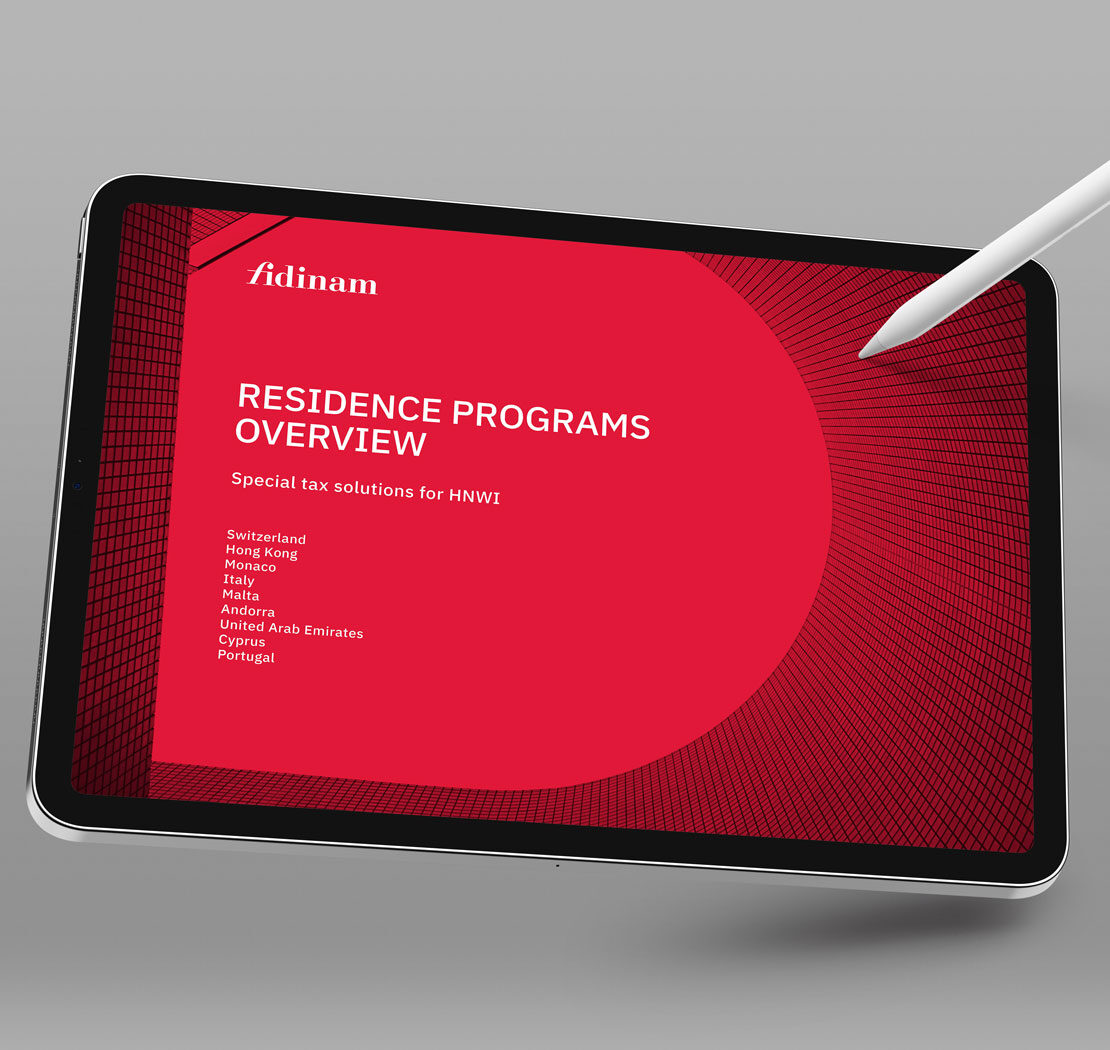What is non-domiciled status?
The Resident Non-Domiciled tax regime, which is more than 200 years old, allows UK resident individuals whose main residence (domicile) is abroad to not be taxed on foreign-source income and capital gains, provided these are not repatriated to a UK bank account (so-called 'taxation on a remittance basis'). This regime also exempts all assets located outside the UK from inheritance tax.
How are the non-dom tax status rules changing?
The Resident Non-Domiciled tax regime, also known as Res Non-Dom and Non-Dom, introduced in the UK back in 1799, has undergone several major changes over the past two decades.
In 2008, a minimum annual tax of GBP 30,000 was introduced for non-Doms who had spent at least seven of the previous nine years in the UK, increasing to GBP 50,000 in 2012 for those who had spent at least twelve of the last fourteen years in the UK.
In 2015, the amount of the minimum annual tax was increased from GBP 50,000 to GBP 60,000 for non-Doms who had been resident in the UK for more than twelve of the last fourteen years and by introducing a tax of GBP 90,000 for those who had been resident in the UK for more than eighteen of the last twenty years.
Lastly, in 2017, the UK government amended the Resident Non-Domiciled regime, limiting its duration to a maximum of fifteen years.
Non-Dom tax status abolished
On 6 March 2024, the Spring Budget 2024 published the plan to abolish the Res Non-Dom tax regime. Instead, a new optional regime will apply for those who qualify as UK tax residents from 2025.
Impact of 2025 changes on non-domiciled individuals in the UK
Current Non-Domiciled Residents will benefit from a special rule in the first year, allowing only 50% of their foreign-source income to be taxed for the 2025/2026 tax year. From 6 April 2026 the entire worldwide income will be subject to ordinary UK taxation.
In the first two years (2025/2026 and 2026/2027) non-Doms will benefit from a reduced 12% tax rate on all income remitted to the UK prior to 6 April 2025, except for income from offshore trusts.
From 6 April 2025, income and gains derived from foreign Trusts may be taxed in the hands of the UK resident settlor at the time they originated. On the other hand, income and gains prior to 6 April 2025 should only be taxed at the time of their distribution by the Trust.
Finally, from 6 April 2025, changes will also be made to inheritance tax, moving from a domicile-based regime to a residence-based regime.
Any assets, including foreign assets, which will be attributed to an existing Trust, and/or new Trusts established on or after 6 April 2025 by a Non-Dom individual in the UK, will be subject to UK inheritance tax. Foreign assets already held by a Trust before 6 April 2025 should not be subject to inheritance tax.
Several technical aspects concerning changes to inheritance tax will be finalized in the coming months, following consultations with representative bodies and other stakeholders.
Switzerland: a tax-advantageous alternative to the end of the non-Dom regime in the UK
With the abolition of Res Non-Dom in the UK, many wealthy citizens will face a new tax reality, losing their previous benefits. It is likely that many UK non-Doms will choose to relocate to countries with attractive tax regimes, such as Switzerland, Italy, the United Arab Emirates and Monaco.
Wealthy citizens of the UK looking for a viable alternative can find it in the so-called lump sum tax regime offered by certain Swiss cantons. Compared to other countries, Switzerland offers a favorable tax system with competitive tax rates, especially for individuals with high income and/or wealth.
Switzerland’s advantages extend beyond favorable taxation: from the beautiful landscapes to the excellent healthcare system, from the state-of-the-art infrastructure to the high level of personal safety. Switzerland's attractions are many, including:
- Excellent Quality of Life:
Clean, safe, and well-organized cities in terms of infrastructure. State-of-the-art healthcare system offering high-level medical services.
- Economic and Labor Stability:
Stable and globally competitive economy. Switzerland hosts many multinationals and financial institutions offering diverse career opportunities and has a generally low unemployment rate.
- Security:
Switzerland is one of the safest countries in the world, with low crime rates and law- and order-abiding citizens.
- High Quality Education:
Swiss schools and universities are renowned for their academic excellence. In addition, the Swiss education system offers diversufied pathways and multilingual education.
- Environment and Nature:
With breathtaking landscapes composed of mountains, lakes and natural parks of great beauty, Switzerland is a renowned destination for outdoor enthusiasts.
- Multiculturalism and Multilingualism:
There are four officially recognized languages: German, French, Italian and Romansh; in addition, most of the population is fluent in English. Switzerland is also strongly multicultural, which facilitates the integration of people from all countries.
- Efficient Public Services:
The country has a modern and well-maintained infrastructure network.
- Sustainability and Innovation:
Switzerland is at the forefront of environmental sustainability and green technologies and is a major center of innovation, ideal for start-ups and research institutes.
Non-Dom taxation in Switzerland: lump-sum tax and expenditure-based tax options for foreigners
Apart from the cantons of Schaffhausen, Appenzell Innerrhoden, Basel-Landschaft, Basel-Stadt and Zurich, the Confederation has for some time now recognized favorable tax treatment for foreigners who elect Switzerland as their place of residence, provided certain criteria mentioned in the law are met.
This is what is known as 'lump sum taxation' and is a taxation system designed to attract foreign citizens with high income and/or wealth by virtue of competitive taxation.
The characteristic features of the Swiss preferential tax regime can be schematically summarized as follows:
- Definition and Legal Basis: Taxation according to expenditure is a method of taxation that allows certain individuals to pay a tax based on living expenses instead of total income.
- Formal (cumulative) requirements:
• Non-citizens: do not have Swiss citizenship.
• Residence: for the first time or after a break of at least ten years they are subject to Swiss taxes without limitation; and.
• Absence of Gainful Activity in Switzerland: Applicants must have no gainful activity in Switzerland.
• Spouses: If applicable, both spouses must meet these criteria.
- Basis of Calculation of Taxation
• The tax is calculated based on the annual living expenses of the taxpayer and his dependents, both in Switzerland and abroad. However, the basis for calculating taxation may not be less than a minimum amount of CHF 429,100 (for the 2024 tax year this figure is identical at both federal and cantonal level) or, alternatively, a higher taxable amount:
- For taxpayers who have their own household: an amount corresponding to seven times the annual rent or rental value;
- For other taxpayers: an amount corresponding to three times the annual rent for board and lodging at the place of residence;
- The sum of gross income from Swiss sources.
4.
Tax rates: The tax rate applied is the ordinary rate.
5. Imposition Procedures:
• Ordinary procedure for taxation according to expenditure: A taxpayer wishing to assert a right to taxation according to the expenditure must submit the appropriate tax declaration and prove that he meets the relevant conditions.
Before proceeding to taxation according to the expenditure, the competent authority must ascertain each time that the taxpayer fulfils the relevant conditions and, in this context, that he has provided all the required information and evidence. The taxpayer shall spontaneously and immediately notify the competent tax authority of any circumstance likely to affect the right to taxation according to expenditure or the conditions of its application.
In principle, taxpayers who pay tax based on expenditure can claim the advantages of double taxation agreements concluded by Switzerland, in particular the relief from foreign withholding taxes provided therein. In their tax declaration, they must declare whether, and if so to what extent, they have claimed or intend to claim the benefits of the relevant agreement.
The taxpayer may only enjoy the benefits of the treaty for income accrued during the period in which he was unlimitedly taxable in Switzerland. In addition, special conditions are provided for in the agreements concluded with Austria, Belgium, Canada, Germany, Italy, Norway, and the United States.
• Modified form of taxation according to expenditure: According to the double taxation treaties concluded with Austria, Belgium, Canada, Germany, Italy, Norway and the United States, natural persons resident in Switzerland may only avail themselves of the benefits of the treaty if all their income from these contracting states is taxable according to Swiss tax law and subject to direct taxes of the Confederation, the cantons and the municipalities.
Accordingly, an individual subject to tax according to the expenditure which, on the basis of the aforementioned double taxation conventions, claims relief from the taxes of these Contracting States must be treated, with respect to all income from these States, as if he were subject to ordinary taxation. For this reason, all income from these Contracting States must be included in the basis of assessment in addition to the income mentioned in the Act, provided that it is taxable according to Swiss domestic law and is not exempt from Swiss taxes under the relevant double taxation conventions. Taxes on all income from these Contracting States shall be levied at the overall income rate.
If the taxpayer waives the regular disclosure of all items, taxation according to the modified form shall be at the maximum rate.
• At both cantonal and municipal level, wealth tax must also be taken into account, and the calculation varies depending on the canton of residence. For the Canton of Ticino, the minimum taxable wealth is calculated by multiplying the taxable income five times.
In conclusion, the lump sum taxation system is designed to attract wealthy individuals who do not wish to work in Switzerland, offering a competitive tax regime based on expenditure rather than income received from abroad.
How Fidinam can support you in tax planning for your residence in Switzerland
With our in-depth knowledge of Swiss and international taxation, we provide expert support on issues related to taxation, citizenship, and residence programs. We assist with planning and handling applications with relevant authorities, as well as tax preparation, for both individuals and legal entities.
Contact us for clarification on these matters or to submit your case to us.
Fidinam & Partners
This article is edited by Rudy Summerer and Giuseppe Lerose, Associate Partner and Co-Head of Fidinam & Partners' Swiss Tax Consultancy Competence Center, with the cooperation of Fabrizio Ghidini, Associate Partner and Head of International Tax Consultancy Competence Center.

